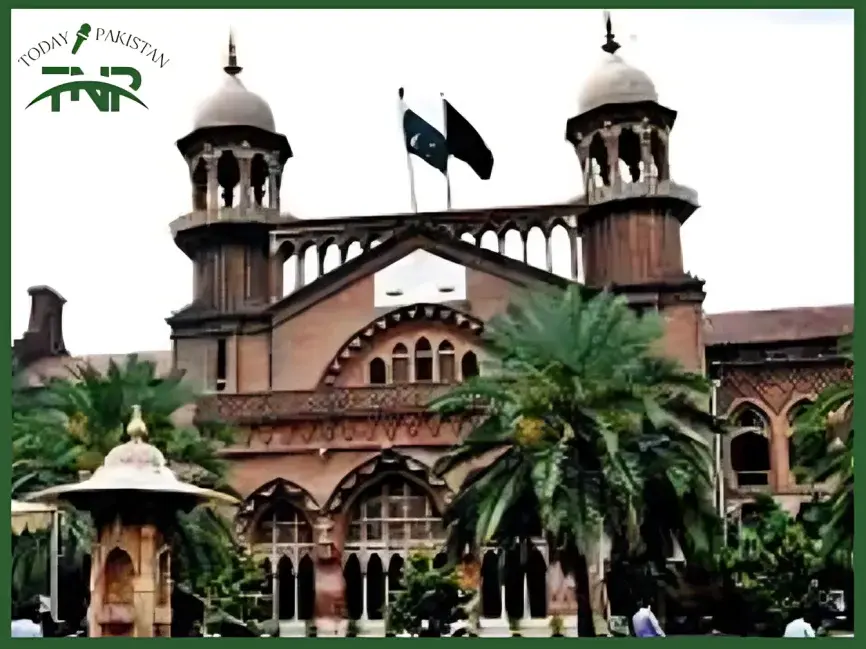Lahore, September 6, 2024 — Justice Faisal Zaman of Lahore High Court (LHC) has withdrawn himself from the case relating to the implementation of the firewall and WMS (web management system). It has now taken this decision to refer the case to the Chief Justice for a further step to be taken. The promotion of such a system has been subject to a more general legal and public discussion about the relationship of these systems with fundamental rights and the digital economy.
Background of the Firewall and WMS Case
Specifically, the petition in question was filed by an advocate Azhar Siddique who has expressed concerns for the enforcement of the firewall and WMS case. According to the terms of this petition, its author claims that this system has greatly affected the speed of internet connections and it is detrimental for the youth of Pakistan as they are the key players in its digital economy. Siddique says that such measures should not only be reviewable by the courts but also require consultations with selected parties so as not to infringe on the rights of individuals.
Concerns Over Internet Speed and Digital Economy
The most important claim presented by Siddique is the impact of the firewall and WMS on Internet speed. As mentioned in the petition the unlimited throttling of internet speeds is severely affecting the youth who heavily depend on fast and efficient internet connections for learning, employment or even starting businesses. This concern relates to the general issue of how technological and administrative choices influence people’s economic prospects and information rights.
The digital economy that has been prominent, especially in the recent past remains a major growth area for Pakistan but comes with the necessity of an uninterrupted internet. This is the reason why the firewall is viewed as a negative force in this sector as it threatens economic development and innovation. Therefore, the petitioner has recommended that it should not proceed with the implementation of the firewall and WMS until such time that a review of the proposal has been made and consultations are conducted.
Legal Challenges and Public Sentiment
The legal battle has been made more complex by another similar petition filed in the Islamabad High Court by senior journalist Hamid Mir. As Mir’s petition stated, and which is represented by lawyer Imaan Mazari, he also apprehends the firewall and internet shutdowns. Mir further opines that the deployment of such systems could become a breach on the part of the individual rights of the citizens if such systems are deployed without the requisite involvement of stakeholders.
This petition reflects a new growing concern of the public, which envisages the establishment of restrictive systems as a threat to freedom and future economic prospects. The legal struggles over these matters form part of this ongoing discourse of how to strike the right balance between national security and public order on one hand and human rights on the other, in the contemporary world especially as facilitated by Information Technology.
Petitioner’s Call for Recognition of Internet Access as a Fundamental Right
A primary recall of the petition is to obtain an amendment to the constitution to include internet access for business purposes as one of the rights. The rationale here is that in current society, using the internet is not a mere privilege but a need for being able to engage in most economic and social opportunities.
Basically, the petitioner holds the view that the effects of a firewall and WMS on the use of the internet should be viewed from retained fundamental rights protection laws. The request is to bring out how such measures fit into the current constitution and whether they are prejudicial to any group most especially those who rely on the internet to make a living.
Implications for Future Policy and Governance
The case of the firewall and WMS case (web management system) explains why there is a necessity to consider the legal proceedings and public debate around the roles of technology policies. As the case evolves it will be crucial to point out the considerations that various stakeholder groups may have and make sure that any such systems in place do not violate citizens’ rights or hamper the economy’s development.
It also creates a precedent of how such matters will be addressed in the future in which the rights and freedoms of the individual on the one hand and technological improvements on the other hand are of paramount consideration. Depending on the result of this firewall and WMS case, Pakistan may potentially adopt more stringent measures that may greatly affect internet governance and digital rights.
Conclusion
There was quite an interest in the firewall and WMS case when Justice Faisal Zaman was involved but when he withdrew from the case discussion shifted back to the Chief Justice of Pakistan and as a result, the public has been alerted to many more legal and social aspects of firewall and WMS systems. Therefore, concerning the legal battle, the issues of internet speed, the effect on the economy, and finally the issues to do with rights/options will always stay as the key issues as other issues are sorted out in the legal procedure. These cases’ decisions will probably determine subsequent politics and establish significant precedents to govern digital Pakistan.
Check out our more blogs on Today News Pakistan for more valuable information and insights. Click here to expand your knowledge!
Get Curated Post Updates!
Sign up for my newsletter to see new photos, tips, and blog posts.







